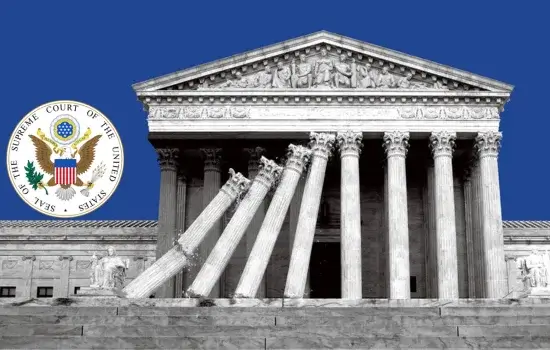The U.S. Supreme Court is deliberating a pivotal case concerning Tennessee’s 2023 law that prohibits hormone therapy and puberty blockers for minors under 18. The Court’s decision, anticipated next year, could influence similar legislation in 25 other states.
Background of the Tennessee Law
Enacted in 2023, Tennessee’s law restricts access to gender-affirming medical treatments for transgender youth, specifically banning hormone therapy and puberty blockers for individuals under 18. Proponents assert that the law safeguards minors from medical interventions they deem experimental and potentially harmful. Conversely, opponents argue that it discriminates based on sex and infringes upon constitutional rights.
Legal Challenge and Arguments
The law faces a legal challenge from three transgender teenagers, their parents, and a physician. They contend that the ban violates the U.S. Constitution’s Equal Protection Clause by discriminating based on sex. Supporting this view, the Biden administration and various medical organizations argue that the law denies transgender individuals access to treatments available to other adolescents with medical needs and impedes parental rights to seek necessary care for their children.
Supreme Court Deliberations

During oral arguments, a majority of the nine justices exhibited skepticism toward the challenge against the ban. Chief Justice John Roberts questioned the judiciary’s role in medical decisions, suggesting such matters are traditionally within the purview of state legislatures. He remarked, “The constitution leaves that question to the people’s representatives, rather than to nine people, none of whom is a doctor.”
In contrast, the Court’s three liberal justices appeared more sympathetic to the challengers’ arguments. Justice Ketanji Brown Jackson drew parallels between the Tennessee law and historical legislation prohibiting interracial marriages, which the Court invalidated in the 1960s. She noted, “The laws here operate in the same way,” emphasizing that the law’s application depends on the individual’s sex.
Defending the statute, Tennessee’s Solicitor General, J. Matthew Rice, argued that the law does not discriminate based on gender but aims “to protect minors from risky, unproven medical interventions.”
Implications of the Decision
This case marks the first occasion the current Supreme Court, with its conservative majority, is addressing a significant issue within the nation’s ongoing “culture wars.” The forthcoming decision holds substantial implications, potentially affecting similar laws across numerous states and shaping the future of transgender healthcare rights in the United States.
Conclusion
As the Supreme Court deliberates this contentious issue, the nation awaits a ruling that will not only determine the legality of Tennessee’s law but also set a precedent impacting transgender healthcare access and the balance between state legislation and constitutional protections.

